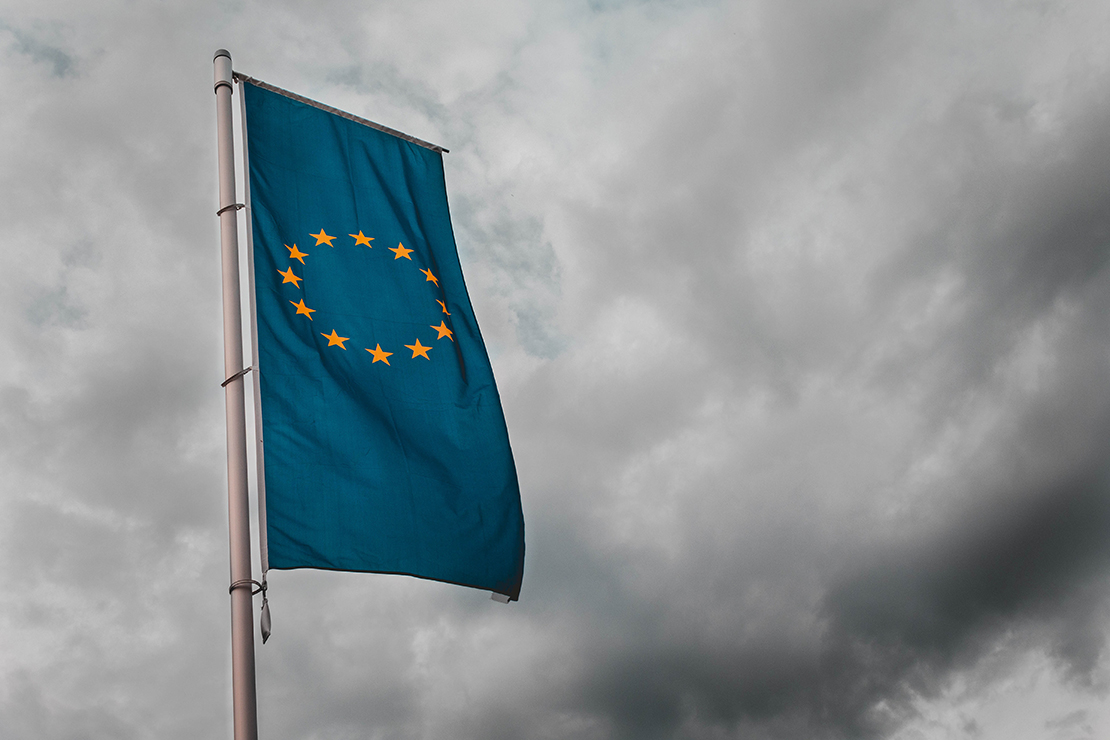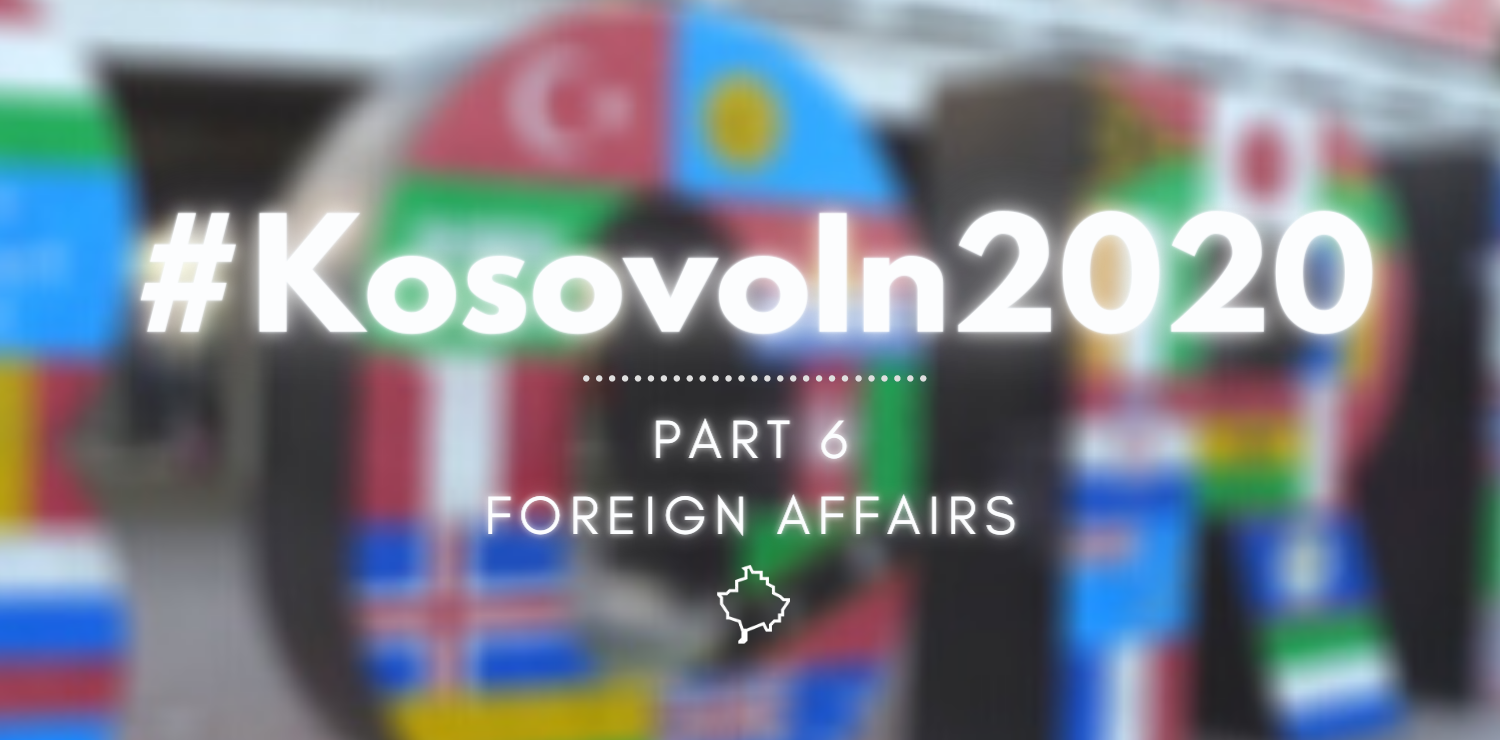Authors

Lirika Agusholli Berisha
foreign policy, diplomacy, conflict resolution, peace building in post-conflict societiesSPECIAL EDITION – SERIES OF ESPRESSO INSIGHTS
2020 has been a year to remember, especially in Kosovo. In this Espresso.Insights series, GLPS recaps and analyses the main events in the fields of politics, law and society that have affected the country this year and identifies the challenges ahead of 2021. In part 6, Lirika Agusholli analyses and evaluates Kosovo’s breakthroughs and setbacks in the field of foreign affairs.
#KOSOVOin2020: Foreign policy
In February 2020, with the coming to power of the Vetëvendosje (VV) government, led by Albin Kurti in coalition with the Democratic League of Kosovo (LDK), the entire government cabinet was changed. One of the important promises of the new administration, long awaited by the citizens of Kosovo, was the reduction of the number of ministries and, consequently, the number of ministers. The Ministry of Foreign Affairs (MFA) was also affected by this alteration after its merging with the Ministry of Diaspora (MD)—consequently, from 2020, becoming the Ministry of Foreign Affairs and Diaspora (MFAD). VV official Glauk Konjufca resigned from his post as Speaker of the Parliament[1]in order to pave the way for the formation of a ruling coalition, and later became Kosovo’s foreign minister.
Konjufca’s political pledges as incoming foreign minister were aimed towards the general rehabilitation of the MFAD, the reform of diplomatic missions, lobbying for state recognition, and the worthy recruitment of new diplomats. Can we say that these promises were fulfilled? It is a little difficult. The work of the MFAD was interrupted, first, by the beginning of the pandemic and, second, by the motion of no-confidence that ousted the Kurti government in late March 2020. Thus, the VV-led administration’s period of reforms was limited.
A shackling foreign policy and efforts for change
In February, approximately two weeks after taking over as foreign minister, Konjufca began the promised plan to purge Kosovo’s diplomatic missions of individuals who had been illegally appointed, and not in accordance with the law. In this move, he initiated the process of dismissal of 14 consuls in Kosovo’s embassies abroad. These consuls had been detected as illegally appointed by the former minister, Behgjet Pacolli. In this way, Konjufca launched the first attempts for change in the structure of the profiles found in Kosovar diplomacy.
Almost at the same time, the ‘Jamaica scandal’ broke. Kosovo President Hashim Thaçi, in a Twitter post, announced that Jamaica had recognized Kosovo. The news was echoed by the country’s institutions, congratulating each other for the great achievement. It was not long before this breakthrough was denied by the government of Jamaica itself. It was—and still is—unclear what exactly happened in this chain of events for such a misunderstanding to take place, and how and by whom Thaçi was misinformed. But what is clear is that this news both clouded Kosovo’s political expectations and sank the country in deep humiliation. Shortly thereafter, in March, Sierra Leone announced it withdrew its international recognition of Kosovo, arguing that Kosovo and Serbia should first find an acceptable solution to the conflict between them.
Kosovo’s foreign policy realm was stained by these two events for a considerable time, which in one way or another damaged its image in the international arena. In the field of international politics, international de-recognition is known more as tool of humiliation towards the ‘de-recognized’ state—a mechanism, in this case, widely used by Serbia in order to hinder Kosovo’s integration into international institutions. In the light of the Sierra Leone setback, Kosovo’s MFAD failed to both inform the public and control the situation, on the grounds that there was no official confirmation on whether the state of Sierra Leone had withdrawn its recognition of independence.
Shortly before the start of the COVID-19 pandemic, the MFAD decided that it was more logical for Kosovo not to apply for membership in the International Criminal Police Organization (Interpol), which enables police in 194 countries to work together against international crime. Since the Interpol regional meeting would be held in Uruguay, a country that does not recognize Kosovo, the MFAD opted for postponing its application for 2021, when the regional meeting would be held in Turkey—an openly staunch supporter of Kosovo’s independence.
Minister Konjufca was politically torn in half by the start of the pandemic in March 2020, and for several months Kosovo’s diplomatic activity was limited to mobilizing and resettling Kosovar citizens stranded abroad.
The government changes, the MFAD changes
With the coming to power in June of the new government led by AvdullahHoti, the VV-affiliated ministers were substituted. Instead of Konjufca as head of Kosovar diplomacy came Meliza Haradinaj from the ranks of the Alliance for the Future of Kosovo (AAK).Haradinaj, educated at Oxford University, and was known to the public as an adviser to former Prime Minister Ramush Haradinaj. Nevertheless, her appointment as minister raised many eyebrows, since whether placing a profile like Haradinaj’s at the helm of the MFAD meant taking a step in the right direction was debatable. Haradinaj, young in age and without much experience in the field of diplomacy, was also accused of not declaring a business based in London. She was found guilty in the first instance of this non-declaration, a decision she appealed. Her suitability for this position, in all, has been questioned since she was appointed.
In July, the MFAD opened a competition for 15 positions for consular officers abroad. The competition was opened without any published analysis of the state of consular service, nor with an assessment of the need for external service providers. This competition was widely criticized for its questionable legitimacy, as it was rather seen as a mechanism that would be used to accommodate party members. Following the scandals that emerged after this competition, such as the systematic favorable treatment given to individuals close to the ruling parties, the minister canceled the opening in the first week of December.
A new focus of foreign policy
Ahead of 2021, the MFAD must urgently work to rebuild its image and the citizens’ trust. This is achieved through an in-depth analysis to identify challenges, deeply structured from within the ministry, and an attempt to amend the Foreign Service law that allows for maneuvers with political appointments.
The foremost challenge for 2021 will be the recruitment of adequate individuals for positions within the Foreign Service, which greatly affects Kosovo’s international portrayal. This process should be conducted after a thorough analysis of the current state of the Foreign Service, in order to identify challenges and needs in this regard. The MFAD will moreover be expected to amend the existent law on Foreign Service, which is now in an initial stage. It should be expected that the amended law will restrict maneuvers and will leave no room for other political or clientelist-oriented systematizations.
Lobbying for membership in international
organizations has already been limited following the signing in September of
the Washington agreement with Serbia. For this reason, lobbying for the
recognition of the state of Kosovo should be strengthened, and therefore, a new
strategy in this aspect is needed.
[1] VV and LDK had long negotiations to form a government. In December, VV decided to appoint Konjufca as the Speaker of the Parliament. Shortly, the negotiations resulted successful and Konjufca resigned from his position to open the way for Vjosa Osmani, from LDK, who took over.
Share article
Related Espresso Insights
March 4, 2024
Espresso.Insights
Passport Hangover: What’s next after Spain’s Kosovo breakthrough?

January 16, 2023
Espresso.Insights
Recognized but not supported: Hungary's stance on Kosovo's EU bid

Latest Publications
April 24, 2024
Policy Analysis
Tracking Kosovo's Commitment: Monitoring Adherence to the Venice Commission Rule of Law Checklist in ...
April 8, 2024
Policy Analysis
Reflecting on the Third Year of Kurti II: Setbacks and Achievements in Rule of Law, Public Administr ...
March 22, 2024
Policy Analysis






